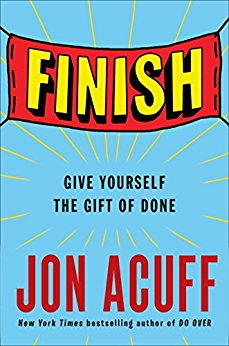
by Jenna | Aug 4, 2020 | Final Draft Articles
Last week I wrote a piece for the Final Draft blog about 7 creative strategies to survive distance learning AND keep writing this fall.
Like many parents, school is majorly on my mind right now, so I’ve been thinking about how best to work with the situation as best I can. One thing I didn’t include in the article (and maybe should have) was how my husband and I are already dividing up the week into a split schedule so we each have solid chunks of protected work time. We’ll adapt that more as we move into the school season.

“The goal is simply to move forward. The goal is to progress, however slowly, in a productive direction. It is the realization that this is, now more than ever, a game of inches and not of miles.”
— Chuck Wendig

With many school districts here in the U.S. planning to open this fall with “full distance” or “hybrid” learning in short order, many writer-parents are anxiously wondering how to keep working their day jobs — let alone keep writing and preserve our well-being — on top of being full-time educators. (And even if you’re not in the U.S., let’s face it: writing and parenting always requires creative planning to pull off, so hopefully this is useful to you, too.)
As someone who has been working from home since 2002 (I’ve kept my business running through my two boys’ early childhoods; they’re now 6 and 12), I’ve come into this situation knowing firsthand how frustrating it can be to try to eke out time and space for work and writing in the midst of taking care of children. And managing distance learning only complicates the care.
Having said that, I also know it’s possible to continue to write, even when pressed for time, energy, and mental bandwidth.
Let me share with you a few things I’ve learned over the years.
Read the article on the Final Draft blog here —> 7 Creative Strategies to Survive “Distance Learning” and Keep Writing This Fall

Image credit: Photo by Ketut Subiyanto from Pexels

by Jenna | Jul 16, 2020 | Final Draft Articles
This week I wrote a piece for the Final Draft blog about mindset perspectives to help us all stay motivated to write, even with everything that’s going on in the world (and at home!). I’ve been using these thoughts and ideas like anchors to help myself write, so I wanted to share them with you too.

“The purpose of a writer is to keep civilization from destroying itself.”
— Albert Camus

Between the pandemic, sweeping societal upheavals, and general world news, it is a massive understatement to say there’s a lot going on right now. It’s easy to get derailed or give up hope. A few weeks ago, I wrote about ways to stay productive and take care of your mental health at the same time.
Building on that theme, today I’m sharing seven mindset perspectives to help you stay motivated to write. Use these thoughts to counter any conflicting thoughts, feelings or self-doubt about your work so you can keep doing what you were put here to do.
Read the article on the Final Draft blog here:
7 Mindset Perspectives to Motivate Your Writing

Photo by Mika Baumeister on Unsplash

by Jenna | Mar 26, 2020 | Writing Articles
We’re living through an unprecedented event in our modern era. Life has changed, radically, in what felt like over night. The word “unprecedented” feels wholly inadequate, honestly. Surreal? Unholy? Disastrous? LIFE ALTERING. Nothing will be the same after this. At least I very much hope that will be true, in the sense of the many broken systems in our world improving for the better as a result of all this.
I’ve been watching this virus since January, feeling like Cassandra, but hoping I was wrong (usually my fears DON’T become reality). And yet, here we are.
I (fortunately or unfortunately?) just read two books about pandemics right before all this started. So. There you go. Lots of swirly bits of fear, dread, terror, hope, and love all twirling around together in an angsty pile of … angst. It’s not like I didn’t already have a full soundtrack of existential dread playing in my mind, what with the state of our government and climate crisis already in play.
So. Mostly, I’m working to stay as calm as I can (which is entirely variable from moment to moment), take care of myself and my family, look for ways to help, and write as I can. And “can” sometimes means “can’t.” Sometimes it means writing articles like these, just to keep putting words on the page.
And speaking of writing, writers everywhere are suddenly facing new circumstances. Some of us have kids at home, for an unknown duration (my guess is the fall start of the school year). Some of us (like in California) have been under a “shelter-in-place”/”stay at home” order for some time already (thank goodness). Some of us have more time on our hands than we’re used to because we’re working from home or unable to work. Some of us have less time than usual to write because of all the other external impacts on our time, plus the internal stresses we’re managing.
It’s easy to think we “should” be writing and writing and writing. But it’s not like this is just some kind of global vacation. There’s a lot going on, constantly, much of which we can’t see.
In some ways this could be a writer’s dream. Lots of forced time at home, with potentially lots of time to write. But that’s only a percentage of us. If we’re homeschooling and working from home, things are actually more complicated, not less.
So what do we really do about writing during times like these?
On Writing
Here are some thoughts on writing for you in this current period of uncertainty:
- Please don’t feel guilty if you’re not writing (yet). This is an entirely unusual situation and we’re all grappling with a massive reorientation of how life even works on this planet. Give yourself space and time to be, rest, think, and process. If the moment arises when you’re struck by the urge to write (anything), go for it. Some are pointing out that Shakespeare wrote King Lear during the plague. That’s lovely. Did he have his kids and family home 24/7? Who was getting him food? You don’t have to be Shakespeare. Everyone’s circumstances are different.
- It’s okay if your pre-pandemic writing projects change or hold less interest for you mid- or post-pandemic. Your interest may return in a few weeks, months, or never. Your projects may change. (Stephen King tweeted about this recently.) Regardless, it’s okay to trust yourself and see what comes. Intense times result in massive shifts in culture, consciousness, and creation. We are likely to have epiphanies about what we want to write mid- and post-pandemic. I expect an entirely new wave of creativity to explode as a result of this period of time.
- It’s also okay to keep working on what you were working on before. If you’re able to keep writing, go for it! Writing is a sanctuary for writers. A place to escape, as well as our job as professionals. In many ways this can be an incredible opportunity to hunker down and focus. (I’ll be sharing an article on the Final Draft blog soon about some tech tools to help.)
- It helps to hold writing as your important work in the world. Even if you’re not working professionally as a writer, thinking of writing as your calling, vocation, and/or profession can help you remember — even in the middle of a pandemic! — who you are and what you were put here to do. Of course, if the house is literally burning down or you’re sick, you won’t be thinking about writing. Of course not. But assuming you’re healthy, safe, and have your basic survival needs taken care of, writing becomes more possible, and sticking to your work is your job.
- If you’re writing with kids at home, get really creative. I’m doing most of my writing while my husband takes care of the kids (a rare treat since he can’t go in to work and he can’t work from home) as well as getting up before the rest of the family to write when I’m alone. For other writers, we might have to write later in the evening, or at lunch time, or while the kids are having some screen time. (And yeah, we’re letting our screen time rules be looser, while also having them do their homeschooling work.)
- On the hard days, write from bed, do “ebb” writing, or write morning pages. If you’re feeling overwhelmed with grief or fear, it’s hard to be creative. I’m finding that sitting in my bed with the covers drawn up, the cat on my feet, and my laptop on a bed table helps create a little cocoon of coziness that’s easier to write in. You can also focus on the easy stuff (that’s the “ebb” writing, hat tip to Naomi for that one) and work on formatting or continuity checks. And sometimes morning pages or love letters to yourself are the way to go. Writing is writing.
- Even if you suddenly have tons of time on your hands to write, you’ll be dealing with resistance, maybe even more than usual. Writers often fantasize about writing in isolation (cabin in the woods, anyone?). But the reality is that suddenly having lots of time can trigger more resistance. And especially when fear and uncertainty take hold, it’s super hard to focus on ANYTHING, let alone write. Remember that writing also involves a high level of decision making, also difficult in times like these. However, you CAN make small moves and take small actions to move forward, even now.
- Reach out and connect. Writers are often used to working from home, but we’re not used to being limited in our interactions quite this much. There are lots of lovely ways to connect with other writers at this point, including on social media. In my Called to Write community, we’ve switched over to meeting on Zoom so we can see each other’s faces. We’re also meeting more frequently, and the turnout for our daily writing sprints is high. It’s SO nice to write together. (Please come join us if you’re looking for structure, support, and community for your writing.)
- Know that writing and art have a huge role to play in survival and recovery. Art, entertainment, fiction, and non-fiction are needed right now, and will continue to be needed as time goes on. How we deliver and receive writing and movies may change. It may not. We don’t know yet. But as writers and artists we have a role to play in the emotional well-being, mental health, and recovery of our global community. The world needs us.
On Self-Care and Grounding
And a few thoughts on self-care and grounding:
- STAY HOME and take care of yourself and your loved ones. At some point or another, we’re all likely to confront this virus personally, somehow. Above all else, your health and well-being must come first. This means doing all the things we’re reading about online, like washing hands, wiping down surfaces, staying home (please stay home, no matter how low risk you might be, in order to help flatten the curve for everyone), using social distancing if you must go out (and making sure it’s a “must” not a “want”), touching faces only with clean hands, staying hydrated, eating healthy food, getting as much sleep as you can, exercising in creative ways, and resting.
- Do things that feel good to you. At my house, with the kids home, in addition to homeschooling, we’re playing games, working on a garden project, baking, exercising, and watching movies together.
- Acknowledge the grief. This is a massive change and loss we’re all experiencing right now, together. We’re grappling with hardcore survival fears right now and seeing the world change in a way we’ve not experienced in our lifetimes. This means we’re grieving. Grieving the restrictions we’re facing, grieving the future, grieving personal losses. So much. And the sensitives and empaths among us will be particularly affected by the collective energy of grief, fear, anxiety, and sadness right now. IT’S OKAY to be having a hard time right now. Grief is heavy, and hard. It helps to acknowledge what we’re feeling. This is grief.
- Remember that things will change, eventually. Elaine Aron mentions this in a blog post written for highly sensitive people (many writers are HSPs). Things may change for the worse before they get better, but they will change. If or when you can, notice that we may see some positives ultimately coming out of this situation. I hope already that voting by mail could become the norm, which will help so many more people be able to participate in our democracy. Carbon emissions are dropping, and we may realize we can make more radical changes to protect the climate. We now have a much, much better understanding of what it means to share a planet and be in this together. There are dolphins in Venice.
A few things helping me right now…
- Liz Gilbert’s “Facing Fear With Compassion” meditation on the Insight Timer app. This is a free offering inside the Insight Timer app as well as on their website, in which Liz offers a love-focused practice to help deal with fear.
- ScreenwritingU’s “Screenwriters Survival Kit” article for writers about managing during this time. My mentor Hal Croasmun put together this guide to help writers stay safe, sane, and productive.
- Chuck Wendig’s article, “It’s Okay That You’re Not Okay”. Chuck is someone I keep turning to and I find his thoughts on our world are often aligned with mine, and reassuring. He swears, so if that bothers you, heads up. He’s also the author of one of those pandemic books I mentioned. ;)
- “Cutting Through Fear” by Tsultrim Allione (audiobook). Chapter 2 is a guided meditation about releasing fear I’m finding helpful though it will feel very out there to some.
- “Pandemic” poem by Lynn Unger on Steven Pressfield’s website. I’ve come across this one in a few different places and love it.
- “Kiwi Virtues in a Time of Trouble” by Steven Pressfield. I loved this article from Steve about the value of patience and skills for hard work. It felt real and grounding.
- “In the Time of the Pandemic” on Kitty O’Meara’s website. Also love this one.
- “I Spent a Year in Space, and I Have Tips on Isolation to Share” by Scott Kelly. Who better to advise us about how to navigate isolation than an astronaut?
- “That Discomfort You’re Feeling Is Grief” on the Harvard Business Review, an interview with the world’s foremost expert on grief, David Kessler, about the grief we’re all feeling right now.
- Naomi’s new blog. My pal Naomi Dunford has a new personal blog about her own quarantine, which I’m loving.
- “Making Art In a Crisis” by Dong Won. Another piece about the illusion of time and space for art that’s permeating the zeitgeist right now and the pressure to perform.
Your turn
How are you? Are you able to write? What are you challenged by right now? What’s making it easier to write?
Let me know in the comments. I’d love to hear from you right now, and I’ll happily answer questions in the comments if you have them.

by Jenna | Apr 10, 2018 | Book Reviews
 I’ve just finished reading Finish: Give Yourself the Gift of Done* by Jon Acuff. It’s a delightfully irreverent book packed with useful insights — sometimes counterintuitive — about how and why we stop ourselves from finishing (hint: perfectionism is the root cause).
I’ve just finished reading Finish: Give Yourself the Gift of Done* by Jon Acuff. It’s a delightfully irreverent book packed with useful insights — sometimes counterintuitive — about how and why we stop ourselves from finishing (hint: perfectionism is the root cause).
It’s been a particularly fun read right now for three reasons.
First, I’ve been reading it alongside several of my community members and we’ve been discussing it on our online site. I have a feeling we’ll be doing this again. It’s a mini online book club. Yay!
Second, I’m just about to lead the goal setting call for a writing intensive I’m running so I’m looking forward to incorporating some of Acuff’s principles into our goal setting work. And since the intensive is designed to help people finish (or make major progress in that direction), it’s particularly apropos.
Third, I know I’m a recovering perfectionist. Or at least a perfectionist who’s trying to recover. (The first step is admitting you have a problem!) So this book was useful on both professional and personal fronts.
Here are some of my favorite takeaways from the book:
- The “day after perfect” is the make-or-break day. Acuff says the “day after perfect” often turns up as soon as day two of pursuing a goal. I see this happening with writers who put in a big burst of enthusiastic writing for their first day out (sometimes later), then crash and burn the next day by going into massive writing aversion and avoidance the next day… which can lead to despair and giving up. I much prefer to see writers pacing themselves for the long haul. Acuff makes the point that we have to focus on “moving forward imperfectly” and “trying again… today, tomorrow, or next week.” I’ve always been a fan of “starting over tomorrow,” whenever I get off track with my goals so I’m right there with him.
- There’s a difference between commitments and distractions. Acuff makes a useful distinction between the things we’re committed to doing, like our day jobs and our kids, as our commitments, and things like Netflix — and those side projects you turn to when it’s time to write — as distractions. See how simple that is? I found this useful for reinforcing what I do when I write out my Three Big Rocks list, which is to focus on the key things I want to accomplish for my goals that day. I don’t include my standing commitments (taking care of my kids and exercising, for example), because I think of them as “givens,” but prioritize the three major commitments I’m making for the day.
- You can look for your own sweet spot with rewards or penalties (or both) when it comes to goal setting. Acuff says, “make it fun if you want it done,” and recommends establishing a reward or a penalty for your goal. I’m more motivated by rewards than punishment, but his writing had me think more about deciding on really fun rewards, and deciding on them in advance. I’m particularly thinking about how I can do this on the daily and weekly scale (one example he gave was how author Sammy Rhoades would reward himself with a Friday afternoon movie for meeting his writing goals, which sounds right up my alley).
- Pay attention to where you “hide” from your goals. Acuff describes both “hiding places” — where we go to avoid our goals — and “noble obstacles” — the clever schemes we design to make it so we can’t possibly focus on our goals because we’re serving some higher purpose. I’ve seen so many writers over the years come up with the most fascinating and suddenly highly important non-writing or OTHER writing projects than they originally come into our programs with. This is really worth paying attention to and short-circuiting.
- Put your new idea at the finish line for your current one. If you tend to come up with a new idea that’s much more appealing than your current project the minute you start (in the coaching world, we call these Bright Shiny Objects), Acuff recommends making the new idea the project you “get to” work on when you finish your current one. With writing, I recommend what I call a “Project Queue” (tips on how to do this with writing projects are in my free guide, “How to Choose Your (Next) Book“). The core idea is to promise to work on the new idea next. In a sense it even becomes a reward for getting to the end of the current one. Yay!
- Aim a little lower with your goal setting. Acuff recommends cutting our goals in half, either by cutting the quantity or output in two, or by doubling the amount of time we give ourselves. This is because most of us are entirely unrealistic about how we set our goals. I’ve personally been setting fewer and fewer goals over the last few years, after seeing myself being unable to attain the multiple, too-fast-paced goals I was aiming for, and I can see right now from checking my 2018 goals list that I may have a bit more tweaking to do after reading Finish, especially after the hard start to the year I’ve had.
- The “day before done” is another place many of us go astray. I’ve witnessed this in my own writing, suddenly becoming apathetic toward a screenplay, telling myself I’ve just lost interest in the story. Acuff identifies three primary fears triggered by a looming finish, including a fear of what happens next (Amazon reviews!), a fear it won’t be perfect, and a fear of “what now?” The key, he says, is addressing these fears with a combination of trusting yourself to figure it out and being open to seeing what happens.
More my favorites in this book are the “secret rules” we use to sabotage ourselves (“If I lose all this weight, then I’ll have to go dancing/be looked at/feel more vulnerable”), choosing what to “bomb” (where you’re strategically choosing to suck at something in order to prioritize your goal), using data to track your goals and “celebrate your imperfect progress,” and many more.
While there were times I wasn’t 100% sure if I thought Acuff was actually writing about resistance and not so much about perfectionism (which I consider to be a subcategory of resistance), I loved what he shared and he has stirred some useful thinking and insight for all of us who have read it.
Highly recommended.
* This is an Amazon affiliate link, which means Called to Write will earn a small commission if you purchase the book after clicking on this link, for which we are greatly appreciative!

by Jenna | Mar 23, 2018 | Writing Articles
There are many stages of writing.
There are the practical stages — inspiration, idea, concept, development, outlining, drafting, revising, editing, polishing, and proofing.
There are the emotional stages of a writing project — from eureka! to discouragement to resolve to despair to euphoria to apathy to completion. It’s an up and down journey sure to delight the most ardent theme park enthusiasts. Or not.
There are also a set of career stages in a writer’s life. We might experience them as a progression as we evolve from feeling the call to write to treating it the way a professional does, or we might move in and out of these states along the path to writerdom.
For example:
- Wanting to write but not writing.
- Writing occasionally, ephemerally, but not quite getting anywhere.
- Binge writing in a big burst of enthusiasm, to meet a deadline, or in a NaNoWriMo-fueled burst, but then crashing into writing aversion/burnout for a long period of time, maybe even months or years.
- Writing regularly and consistently, but maybe not as productively as you’d like to be, possibly struggling with creative blocks along the way.
- Writing like a pro.
Before you hit the pro stage (and sometimes even then), these stages can be sometimes more fulfilling than others, depending on where you are in your writing career.
For example, if you’ve been wanting to write forever, and you’re finally writing every day, even for just a few minutes day, that’s a huge win. On the other hand, if you’ve been plodding away at a draft, day in and day out, and feeling like you’re never getting anywhere, it might be time for a push with your writing.
I generally work with writers in my writing community who want to go from not writing to writing. From writing sporadically and inconsistently, to writing daily. (Or as one of our writers put it, writers who want to go from whining to writing. LOVE that.)
In the online writing intensives I run, I work with writers who are ready for more. They might have the daily writing thing down, but want to put in a focused burst of work on their books or screenplays. This usually happens when they have a goal they’re trying to reach and want a boost of progress to get there.
Here are some examples of times you might be ready for a big push with your book or script.
Signs You Might Be Ready to Go for a Push with Your Writing
- You’re willing and able to carve out the time and space in your life for an ultra-focused period of writing. This means being willing to clear your schedule of any and all extraneous commitments and otherwise scaling back where you can (stockpile your freezer now!) to make it easy on yourself.
- You have a story idea you want to develop or outline and want to (need to!) carve out some time to do it. Putting in a few weeks of intense attention can get you to the finally “ready to write pages” stage and feel incredibly satisfying.
- You’re writing, but you’re stuck in a rut or feeling complacent about your work and your progress. There’s nothing like doing a big push on your book or script to get you out of your comfort zone and operating at a higher level of productivity. You’ll want to make sure you have a way to keep writing once you get to the other side of a focused burst of writing so you don’t crash and burn afterward.
- You’ve done all the prep work for a new project but you’re hesitating and holding back from diving into the actual writing. If you’re sitting on the edge of the pool, scared to even dip in a toe, now might be exactly the right time to take the plunge. It can be easier to face all the resistance in one go, especially if you find a way to write alongside other writers to help support you.
- You’re in the middle of writing a book or a big rewrite and you’re struggling to see the light at the end of the tunnel. The dreaded middle of any stage of book is called the dreaded middle for many reasons, including that it’s just plain hard to get through. Remember — when you’re going through hell, keep going. This is a good time to put on a burst of speed, keep your head down, and keep working.
- You’re staring down a deadline and procrastinating or struggling to pace yourself and you want to avoid the binge-burnout cycle you’re setting yourself up for. Many writers (especially those dealing with second novel syndrome, I find) get stuck in procrastination when there’s a deadline coming up — not close enough to spur you into action, but not far away enough to totally ignore. This makes for a constant and uncomfortable low level of guilt and anxiety. Whether you’re working on a self-imposed deadline, a publisher’s deadline, or other submission deadline, using a focused, structured burst of writing to help pace yourself can be life and sanity saving, plus you’ll be far better positioned not to lose your writing habit on the other side.
- You’re making progress, kind of, but you’d really like to put some mileage on this thing and see your page count climb. Along the same lines as the “dreaded middle,” sometimes you just need to see something, anything happening to feel some sense of progress and accomplishment (so helpful with these long form writing projects).
- You need a safe space to write. If when you’re part of a critique group (or even just hard on yourself in your internal mental conversations), you may want a separate, critique-free writing “space” where you’re just committed to the process regardless of anything else happening. It can be both healing and relieving to “just write” and is particularly so when you’re writing with a group of like-minded writers who help you normalize the experience of writing.
- You wish you could go on a retreat or disappear to a cabin in the woods but you can’t quite swing it with your budget (or your family, job, or other commitments). Finding a way to create a writing retreat for yourself from the comfort of your own home is a lovely alternative and can fulfill much of that desire in you to “get away and write.”
- You know what you want to write but you’re having trouble overcoming resistance. That monster called resistance can be handled in a couple of ways. One is by sneaking past it in small increments of writing time, which is an excellent way to get started. The other is to jump in, full bore, and write like your life depends on it. The trick is having a structured support to help you keep going afterward.
If You’re Ready to Go Big, Here’s How
If you’ve decided you’re ready to make a big focused burst of progress with your writing, while there are certainly options, like creating a self-led writing intensive for yourself or attending a writing retreat (if you can swing the travel, lodging, and retreat costs), I’m a fan of online writing intensives to help you focus and get the most bang of your buck.
There are certainly times when a writing intensive is NOT the way to go — if you’re dealing with creative wounds for example, or having trouble figuring out what to work on. If you’re wondering if you’re ready for a big burst of writing progress, shoot me an email or ask me a question in the comments and I’ll be happy to talk it over with you.
Featured image photo by rawpixel.com on Unsplash

![]()
![]()





